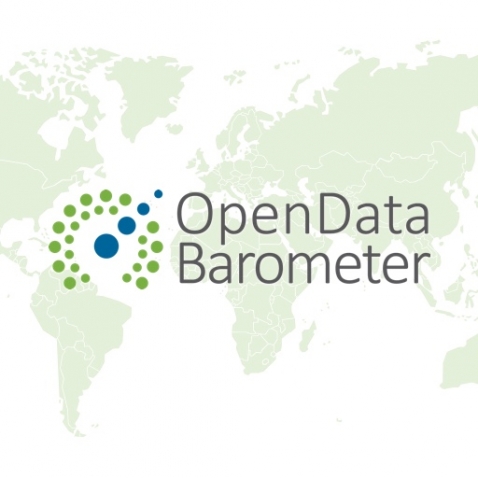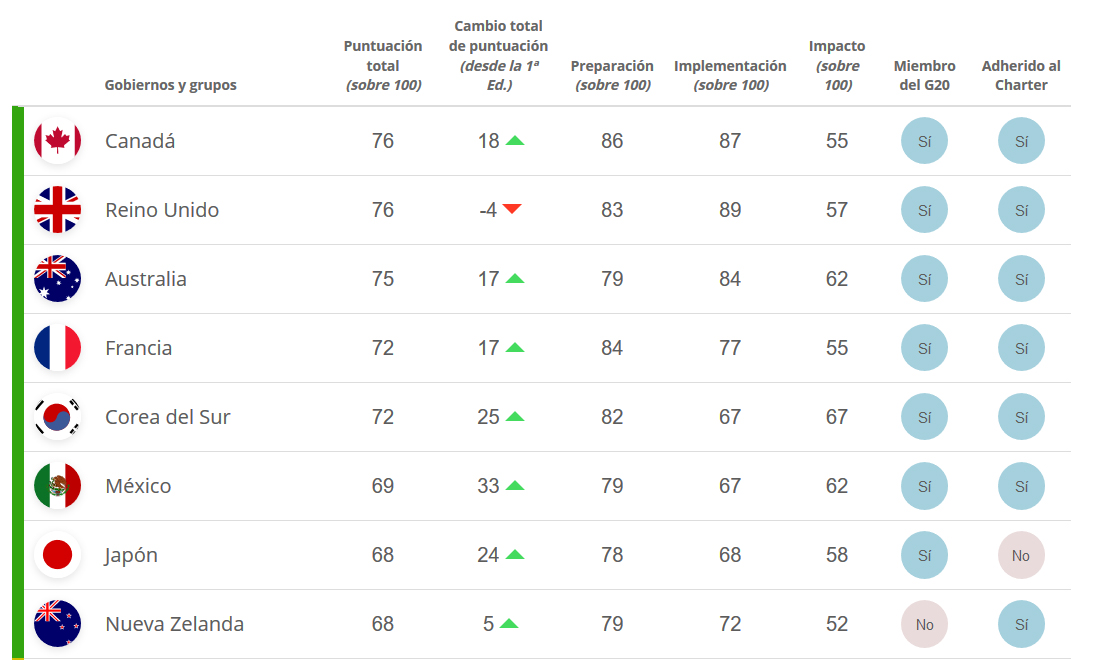Main conclusions of Open Data Barometer
Fecha de la noticia: 10-10-2018

Last September, the last edition of Open Data Barometer was presented by the World Wide Web Foundation. The report measures how some governments, not including Spain, publish and use open data to facilitate accountability, boost innovation and generate social impact. It should be noted that this year's edition coincides with the tenth anniversary of 8 Open Data principles, a date considered the beginning of open data movement.
To carry out this barometer, 30 governments have been analyzed - those that have adopted the Open Data Charter or those that, as G20 members, have committed to G20 Anti-Corruption Open Data Principles -, based on a series of sub-indices that measure the level of preparation, implementation and impact of open data in the country. This year results show a generally slow progress. While some countries continue to see rapid improvement, the report shows that early leaders, such as the United Kingdom or the United States, are no longer in the top positions.
Canada, leader of open data movement
The first place on the podium went to Canada, which advances one position comparing to 2017 and overtakes the United Kingdom. The American country has continuously progressed in recent years, rising 18 positions since the first edition. This is due to the great political support of open data in the country.
The United Kingdom, on the other hand, drops one position. Although the British government has generally improved its data management practices, there is a lack of policies to boost open data and a reduction of engagement with civil society, something similar to United States, which falls to 9th position.
On the contrary, Mexico, South Korea, Colombia, Ukraine, Japan and Uruguay are the countries that most increased their scores in recent years.

Although the advances in recent years, the report shows that open data initiatives and projects carried out by government are still in an experimentation phase.
According to the report, only 19% of all datasets measured meet the requirements to be considered truly open, demonstrating that open data - in the strict sense- continue to be an exception. In addition, collaboration between government and civil society has stagnated, especially in countries such as Brazil, Italy, South Korea, New Zealand, Turkey and the United States.
Open data as a general rule
In order to continue advancing on the maturity scale, open data initiatives should stop being "isolated projects" and begin to be "the general rule". For this, it is necessary to develop specific promotion policies and invest in technical infrastructure and human ressources with the necessary skills.
Specifically, the report includes 3 key recommendations for those countries that want to lead the open data movement:
- Put “open by default” into action: The data should be directly published in open formats. This requires a solid strategies, resources and laws, as well as a cultural change.
- Build and consolidate open data infrastructure: Having the right management systems helps improve the quality of data and its interoperability, facilitating and standardizing the opening of public information.
- Publish data with purpose: Knowing the users’ needs is essential to ensure that we are providing the data that they need in the right conditions. This will facilitate their use and help boost the open data ecosystem. For this, it is advisable to work in close collaboration with civil society, through civic groups, data communities, etc.
After 10 years of open data initiatives, significant progress has been made, but there are still a number of challenges to overcome. With commitment, solid policies and strategies, and common work, government can take advantage of full open data potential, generating significant improvements for all citizens.
If you want to go deeper into the conclusions and recommendations of Open Data Barometer, the report is also available in Spanish.











